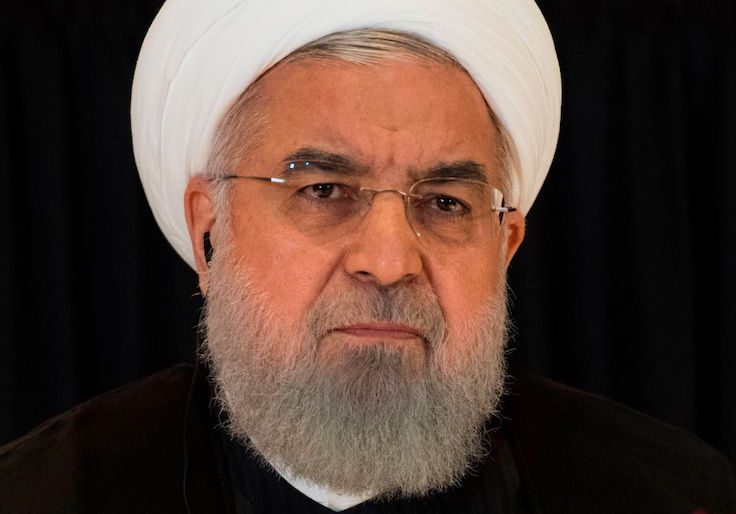As the United States and Iran continue to trade barbs in a tense international standoff, leading lawmakers are starting to pressure Iranian leaders to consent to new nuclear negotiations that could help ease American sanctions and provide relief for the Iranian people, who have been hardest hit by the international community's economic penalties.
After President Donald Trump extended an olive branch to Iranian foreign minister Javad Zarif for talks regarding the country's ongoing work on nuclear weapons and support for regional terrorist organizations, Iranian leaders rejected the offer to hold good faith talks.
Iran's unwillingness to consent to new negotiations is the strongest sign to date that it has no interest in escaping the Trump administration's toughest sanctions, which have isolated the regime, but also have caused economic headache for average Iranian citizens. Trump administration sanctions on Iran have blocked some $10 billion in revenue to Tehran since last November.
Rep. Jim Banks (R., Ind.), a member of the House Armed Services Committee, is one of several leading lawmakers who views Tehran as using its own citizens as pawns in an increasingly lethal standoff with the United States and other Western nations.
"The Iranian people are the real losers, as they are being used as pawns by a despotic and corrupt ruling class," Banks told the Washington Free Beacon. "They are frustrated they have no political or social freedoms, and they suffer under systematic government corruption that takes food out of the mouths of its citizens."
Iranian president Hassan Rouhani "and other members of Iranian leadership could bring relief from sanctions if only they stop their quixotic quest to obtain nuclear weapons," Banks said, highlighting the Islamic Republic's record of killing American citizens and military members in its terrorist acts.
Iran has spent a large portion of the billions it received in cash windfalls under the Obama administration's nuclear agreement on military hardware, advanced weaponry, and its terrorist proxies in the region, including Hamas and Hezbollah. Little of this cash has been used to ease the dire economic situation its citizens have been faced with as a result of the regime's behavior.
"Even with the money they do have after sanctions, rather than help their own people, they choose to 'try hard to export our revolution to the world,' according to Khamenei," Banks said. "They funnel money and arms throughout the region that are used to fight U.S. allied troops in Iraq and Syria. Their weapons have caused the death of American forces. We need to remember this while we pursue negotiations with Iran."
Banks said that he would welcome Trump administration-led talks with Iran, but that they must address Iran's continued work on nuclear weapons, as well as its ongoing support for terrorist groups.
"The Trump administration should have two goals as it negotiates: One, to never let Iran obtain a nuclear weapon. Two, to stop them from funding terrorist organizations," Banks said.
In the years before sanctions were placed on Iran, the regime sent at least $700 million per year, or 70 percent of their revenue to the Lebanese terrorist group Hezbollah, which serves as Tehran's proxy group in the region.
Iran also continues to act as a leading patron of Palestine Islamic Jihad, Hamas, and embattled Syrian leader Bashar al-Assad.
Since it was given hard currency under the Obama administration's nuclear deal, Iran has amped up its military and logistic support to the Houthi rebels in Yemen, who have used these weapons to attack U.S. warships in the area.
Experts estimate that around 80 percent of the pro-Assad forces fighting in Syria are Iranian proxies. Additionally, the Hash'd al Shaabi militia in Iraq has been supported and trained by Iran's Revolutionary Guards Corps, or IRGC.
Iran also continues to crackdown on free speech in the country by torturing and killing dissidents, including children. This is in addition to its efforts to suppress religious minorities, including Christians, Sunni Muslims, and those of the Baha'i faith.
